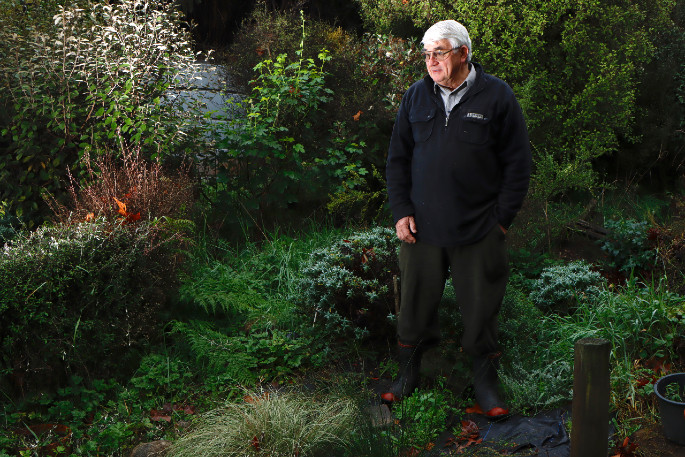The more you learn about Maori medicine, the more you realise it's not just about plants, says Rob ‘Pa' McGowan.
He has been practicing and teaching traditional Maori medicine, or rongoa, for 30 years.
'Modern day medicine tends to focus on physical symptoms, but we are more than just bodies,” says Rob.
'The medicinal value of plants helps but rongoa Maori is about healing the whole person.”
Pharmacy garden
Most of the plants Rob needs for rongoa grow on his 2.4ha Waitao property, where he has lived for 17 years.
'That's because you can't get them in the natural world like you used to, so I grow them in our bushland and garden.
'Take kumarahou for example – elders from the area say it used to grow wild in the Bay of Plenty, and now you don't see it anywhere. We are limited because our landscape has changed so much.”
Rob says identifying plants is a significant part of his teachings.
'Kumarahou can be boiled into a tonic that benefits overall health. Back in the day it was used in most New Zeanand cough medicines.
'But, lots of other plants look like kumarahou, like cotoneaster for instance.”
Rob says there are more than 5000 seedlings in his greenhouses alone. A tray of what looks like grass sprouts is actually 500 cabbage trees.
'Planting natives is very rewarding because you get to be a part of something that will outlive you.”
Holistic healing
While many plants in Rob's garden have specific medicinal purposes, some are just there to look pretty.
'I grow dahlias not because they can be turned into a super-tonic, but because when you're feeling negative, flowers lift your spirit. That's the sort of healing we often need.”
Healing with food
A well-balanced diet is the best kind of medicine, says Rob.
'Many people are becoming disconnected from where their food comes from – that's a big concern.
'I've heard of kids who say they'll never drink milk again after taking a school trip to a farm, because it was the first time they realised milk comes from a cow and not the supermarket.
'Knowing where your food comes from, and especially growing your own food, connects you to the whenua. It's a meditative and gives you a real sense of purpose.
A spiritual journey
While Rob's official rongoa journey started later, he's been gardening his entire life – a skill he first learned from his mum and grandmother.
Rob isn't Maori. He learnt how to practice rongoa from a kuia in Whanganui.
'I was still working as a Catholic Priest at the time. Everyone else was busy working during the day and Priests only work on Sundays, right?” says Rob, tongue in cheek.
'So I would go with the local Aunties into the bush, and help them collect their plants.
'Because I already had some plant knowledge, the kuia felt safe passing the knowledge onto me.”
Learning from the land
Most of the teachings come from observing the land.
'For instance in some parts of the country kumarahou is the first thing to grow back after a fire – and it's great at treating burns.
'The plants teach you everything you need to know.
'It took me a while to grasp that learning rongoa is a spiritual process, even after working as a priest.”
Working for the whenua (side head)
Rob has been championing mother earth for many years.
He's been involved with Nga Whenua Rahui since 2006, a Ministerial fund established in 1991 to protect indigenous ecosystems on Maori land.
With the Waitao Landcare Group, he participates in plantings to protect waterways and develop shade and habitat.
'I travel a lot, which means I don't always get into the garden as much as I'd like. But, if the work I'm doing means the next generation can grow up on a healthier planet, it's worth it.”
His efforts landed him a spot on the 2020 Queen's Birthday Honours List for services to Maori and conservation.
Tiwaiwaka
Promoting Tiwaiwaka, a movement committed to healing the whenua, is Rob's current focus.
'It's based on traditional Maori principles. Caring for the land is the first priority, not our own needs, because the land is the source of all life and we need it to be well so we can be well.
'Our role is to care for the web of connections that sustain life – the mauri. In doing so, we are cared for by it. We find peace.”

